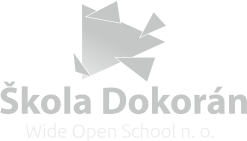Roma Confident Parents Programme
About the project
The main goal of the project was to strengthen Roma families in segregated and marginalised localities in Slovakia, by supporting parents (both mothers and fathers) in their efforts to raise their children in a safe, secure and caring family environment, offering parents information and knowledge about early childhood development, the importance of their role, information regarding alternative, effective parenting techniques (such as alternative approaches to discipline and punishment, play and learning, etc.), promote better communication and understanding between parents and their children (by encouraging parents to invest in spending quality time with their children and to support their development through activities with them), to enhance their children's discovery and learning experiences (through a better understanding of children's development), and to promote positive parental attitudes towards education (particularly in the early years) throughout their children's school years.
The project aims to increase access to multi-sectoral services for parents and children (including antenatal care) and to improve and enhance early learning and parent-child interaction.
The secondary objective of the project was to achieve greater social integration and cohesion between the Roma communities in which the project is implemented and the non-Romani communities in the vicinity of these settlements.
Parenting with Confidence methodology:
Training objective: To get to know the five senses of the newborn and to use them in the process of exploring the new world around, to discuss the differences between newborns, to respond to the baby's signals; to recognise the meaning of facial expressions, gestures, posture and body movements in a personal communication, to practice responding to non-verbal communication of children, to communicate with children during play; to understand the anxiety and fear of separation/unknown people; to understand the need for emotional bonding; To understand the brain development of babies, their growing sense of self and to find ways to help the two year olds to do everything by themselves; to understand the nutritional needs of toddlers and their behavioural changes, to discuss the amount of food they eat, the problems associated with feeding them and to find ways to feed them without struggle; to help facilitators understand their child's temperament, the differences between their temperament and the child's temperament and how temperament helps parents to achieve positive interactions. We remind them that there is no such thing as a perfect parent. They need to understand the need to match behavioural expectations with the age and developmental stage of their children; to distinguish between discipline and punishment; to identify effective responses to children's misbehaviour; to help parents understand the importance of play and to learn how to play and how to stimulate play with their children; to discuss how play changes during the first year; what types of play can be used from 1 and 3 years of age; to identify characteristics of effective play tools. To include effective learning experiences in everyday activities and find ways to enhance and support their child's play and encourage parents to make toys from different materials; to learn how babies communicate before they learn to talk and how to stimulate their child's language development and become familiar with the stages of learning and speaking. Find out why first language skills are not the result of direct imitation of adult speech. Identify natural opportunities to talk to their children and support them to learn from their parents; to be aware of potential delays in language development and why support and encouragement are the most important factors in helping a child to learn and acquire language skills; to practice and encourage the use of language to express understanding, respect and positive guidance in different situations; to discuss the impact of music and how to help children acquire relevant language skills, for example: rhythm and meaning of new words. Understand the importance of reading books from an early age. Become familiar with the developmental stages of early literacy. Practice the skills of reading aloud to young children. Design a book and read it with children.

